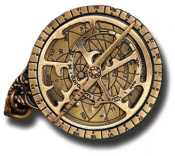 We have looked at all four learning styles. Did you find where you fit? Even more, have you learned to appreciate that not everyone learns in the same way you learn? This time I want to go a step further and explain how learning styles fit in different cultural settings, and next time how it even affects different denominations.
We have looked at all four learning styles. Did you find where you fit? Even more, have you learned to appreciate that not everyone learns in the same way you learn? This time I want to go a step further and explain how learning styles fit in different cultural settings, and next time how it even affects different denominations.
In every culture, all four learning styles exist. However, not all cultures fit the same learning style(s). Let me explain. We live in a Western culture. The characteristics of Western thinking are that we like things to be done in a logical, sequential, and time-honoring way. When we teach something like Church History, we make sure we start from the very beginning and work straight through to today.
Well, not every culture works like this. Two-thirds of the world fits what is called a non-Western culture. Time is not measured the way we measure it in importance. In a non-Western setting, time is not as important as the event is. Let me give an example.
A colleague of mine in South Africa asked if he could teach Church History. He was educated in Western schools, colleges, and also two seminaries. But he was from a very non-Western culture, and his learning style was imaginative, stretching over into the dynamic. After teaching for a couple of weeks the students started coming to me complaining about the class. They could not figure out what he was doing. The first week he started with Martin Luther, then went back to Augustine, then to Constantine. As the students talked I began to realize what the prof was doing. I asked the students if they enjoyed the lessons on Luther, etc. They loved what he had to say, but they could not put together what he was doing. Nor were they happy that Church History was all over the place.
These students previously had my course on Teaching and Learning, so I went over with them what we studied regarding learning styles and their effects on culture. It was the events of history that were important to this prof more than where they fit in history. He was a global learner, more interested in people and events than in details like who came first. Once the students put all this together, they were able to go back to class, and together we worked with this prof to help him understand what was going to help these students the most.
Another way to understand this cultural divide is to see how it affects our observance regarding time. Westerners keep time, while non-Westerners make time. Which one is right? If you say one or the other you would be wrong. It is not a right/wrong issue. Both have their place, and both need to learn to play well with each other.
If you can grasp this difference, then there is one more thing that will help in your Bible study. The culture of the Bible is not Western! When you read the Gospels do you ever wonder why the events of Jesus’ life are not written chronologically? The Gospel writers were not Western. What was important to them was each event of Jesus’ life more than the sequence. Therefore, learn from what God has given us, and don’t try to read more into it than is there.
If you have questions about this, or anything regarding learning styles or Christian education, we are here to help. Feel free to email me, and I will do what I can. dbennett@pcanet.org
